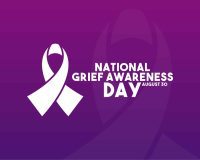
When most people hear hospice, they usually associate it with patients suffering from chronic and terminal illness such as cancer, stroke, COPD, and liver failure. What doesn’t readily come to mind is that hospice care can be just as effective for those suffering from Alzheimer’s Disease (AD) and related conditions like vascular dementia, Lewy Body dementia, and frontotemporal dementia.
The progression of dementia is very difficult to pinpoint and categorize into calendar stages like other diseases, and so it can be difficult to determine the best time for hospice care. Once a diagnosis has been made, there are several stages and a clear progression that can be expected. A guideline to help doctors, patients, and their families understand the progression of the disease. Reisberg’s Functional Assessment Staging (FAST) scale is most often used to determine eligibility for those with dementing illnesses. The FAST scale is divided into seven categories:
The first five are:
- No cognitive impairment, normal functioning
- Possible mild cognitive impairment
- Mild cognitive impairment, interfering with complex tasks
- Mild dementia, where everyday tasks like cooking and banking are affected
- Moderate dementia, needing help choosing appropriate clothing.
Categories six and seven are divided into sub-stages. Stage six is all about difficulties with the most basic everyday activities like getting dressed, bathing, and going to the toilet independently. The sub-stages are:
- Difficulty dressing
- Serious difficulties with bathing
- Inability to toilet properly without help
- Urinary incontinence
- Fecal incontinence.
At stage seven, the patient begins to lose speech and movement. The FAST scale sub-stages are:
Severely limited speech, just a handful of words a day
- Little to no intelligible speech
- Unable to walk
- Unable to sit up without help
- Unable to smile
- Unable to hold head up without help.
Alzheimer’s Disease always progresses through the FAST scale in order, although there are other dementia conditions that do not. Patients may also skip stages, so it is never too early to begin asking questions about hospice care, especially because in the later stages of the disease, patients are unable to communicate their basic needs as well as any pain or discomfort they may feel. At the very minimum, While a physician must make the official determination of life expectancy, it is time to request hospice enrollment if an individual with dementia exhibits the following signs:
- Constant, elevated levels of anxiety and stress;
- Complete dependence on others for assistance with activities of daily living (ADLs) such as eating, bathing, grooming, and toileting;
- Extreme difficulty or complete inability to walk without assistance; and
- The ability to only speak a few intelligible words and phrases.
In general, patients who are exhibiting Stage 7 symptoms have a life expectancy of six months or less if the disease continues in its typical progression. These patients are then considered candidates for hospice. In addition, they need to have had a complication of their illness. This refers to patient conditions such as aspiration pneumonia, sepsis, pyelonephritis, stage 3 or 4 pressure ulcers, persistent fever, or significant weight loss.
Hospice care for dementia patients differs from other hospice patients because most of them cannot communicate anymore, are physically inactive and spend most of their time in a geri-chair or bed. Gauging the patient’s level of comfort or pain by watching facial expressions is imperative for the hospice team members so the family and caregivers can be educated on recognizing non-verbal cues, thus ensuring the continuation of quality of care.
Another big part of hospice therapy for dementia patients is providing a variety of sensory connections. Tactile stimulation such as massage and music therapy can be very soothing. There are several published reports that reveal the connection between dementia patients and music. Patients that are limited in speaking and movement respond to music by singing and even moving their feet and bodies in time with the rhythm.
Educating families on determining the right time to call hospice care for their loved one suffering from Alzheimer’s or dementia is imperative. This reduces caregiver stress and ensures the proper and quality end of life care for the patient. It can be difficult to make the hospice decision because the disease is slow-moving however, it is important to have conversations early. This is so any questions can be asked by the patient and family prior to the critical point of illness, and you’re at a crossroads sooner than expected.
Click here to learn more about our counseling and bereavement services.
Additional links:
https://www.pathwayshealth.org/hospice-topics/hospice-alzheimer%C2%80%C2%99s-patient-need-know/
https://www.agingcare.com/articles/hospice-care-for-advanced-dementia-when-is-it-time-200580.htm
https://www.crossroadshospice.com/about-hospice/hospice-eligibility-criteria/dementia/




